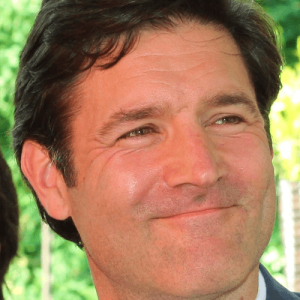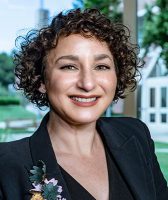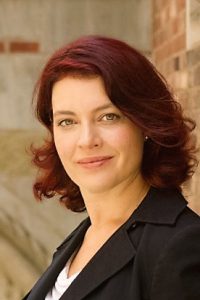
University of Florida, Levin College of Law
Despite what you may have heard, it is possible to become a tenure-track law professor after an extensive career in practice. If you have a proclivity for scholarship and a passion for teaching, I think you will be warmly welcomed by the academy. After almost 20 years practicing corporate law, I finally plunged into academia and have recently accepted a position as an assistant professor of law at the University of Florida, Levin College of Law. I write to share my experience as a mid-life candidate on the law school hiring market and to offer a perspective to other experienced lawyers considering a transition into academia.
Taking the Plunge
For as long as I can remember, I’ve loved getting lost in the library. While becoming a professor appealed to me as an undergraduate, I ended up going to law school instead of pursuing a Ph.D. During law school I also considered life as an academic, but my interest in law and diplomacy carried me in a different direction. After a brief stint in government, I joined a large international law firm. There were many aspects of private practice that I loved, but too often I found myself bored and unfulfilled. So, when I read that to be content you should do “the thing you can’t not do,” I realized that my “thing” was research (my wife is no longer surprised to find me scanning Wikipedia for background on a movie while we’re watching the movie), and I should reconsider academia. Having taught as an adjunct, I knew that I also enjoyed the classroom. As an introvert who is often uncomfortable at cocktail parties, I am surprisingly happy addressing a room full of strangers. Based on these insights, I decided to pursue a career pivot from practice to professorship.
A cursory review of law school hiring blogs revealed that publications were the coin of the realm and I hadn’t had any publications since law school more than 20 years before. As a partner in a large law firm, I knew I couldn’t produce quality scholarship while retaining a successful practice, so I began investigating other positions that might afford me more time to write. I considered counsel and in-house positions, as well as clinical teaching, professor of practice, visiting assistant professor (VAP), and fellowship opportunities.
As I contemplated my next steps, an incredible opportunity presented itself. The Rock Center for Corporate Governance at Stanford Law School, a commutable distance from my home, was looking for a new academic fellow. I applied, but my candidacy was initially met with some skepticism due to my long time in practice and lack of scholarly track record. To overcome the skepticism, I wrote four “one-pager” summaries of prospective law review articles in a week, and ultimately, the Rock Center offered me the fellowship. So, even if you haven’t published recently, at least some fellowship programs may be willing to take a chance and help you transition into academia.
Preparing: A Fellowship
The best way to get any job is to be doing the job before you apply. In the Rock Center fellowship, I had the opportunity to engage in academic life before applying to become a professor. Thus, by the time I got to the AALS Faculty Recruitment Conference (FRC), I felt like I belonged there.
Early on in my fellowship, however, I didn’t feel that way. I had to overcome internal and external skepticism about my ability to succeed. Reading a number of faculty hiring blogs gave me the impression that lawyers in practice have a shelf-life, with an expiration date stamped on their forehead, while Ph.D.s are in high demand. When all the fellows at Stanford got together for a brown-bag lunch, I was immediately intimidated by the fact that almost all of them either had or were completing a Ph.D. I began to wonder whether I’d made a mistake. My concerns were not assuaged when one of the professors advising fellows suggested that I pursue a professor of practice position (which, as far as I could tell, were rare, bespoke, and not often publicly advertised) instead of a tenure-track job.
Thankfully, I had a faculty mentor who believed in my potential and consistently supported my aspirations. The fellowship became my incubator, and taught me important lessons that helped me transition into academia in a number of ways:
Reading: You must begin becoming a scholar by reading the existing literature in your field. Familiarity with the existing literature improves your chances of doing ground-breaking scholarship that will be valued by the academy, and creates an opportunity to join existing conversations among scholars in your field. Getting noticed as a promising scholar makes it more likely you will be hired as a professor. The fellowship gave me time to do this in the same way that pursuing a Ph.D. gives a graduate student the opportunity to become expert in an academic discipline. I imagine you could do this on evenings and weekends while practicing law, but it never felt possible to me. In a fellowship you are getting paid to read and understand existing scholarship as well as produce your own.
Writing: Research and writing take time. The fellowship allowed me to spend many hours creating a unique, hand-collected database of corporate governance provisions in corporate charters and writing about what I discovered in the data. I would not have had the time to do that in any other job.
Teaching: Teaching opportunities for fellows vary. In my case, I was asked to teach Mergers & Acquisitions. Later, I also had the chance to teach Business Associations as a lecturer at Berkeley Law School. These opportunities allowed me to experiment with pedagogy and confirmed my hunch that I would find teaching tremendously rewarding.
Mentoring and observation: The most valuable benefits of a fellowship are mentoring and the opportunity to observe scholars in action. As a fellow, I had a faculty mentor who offered guidance and comments on my research and writing. My predecessor and other fellows ahead of me in the hiring process were generous with ideas about getting published, connecting with other scholars, and navigating the hiring market. I also got to observe Stanford professors and visiting faculty present their research to one another in faculty lunches. By the time I was on the market, the job talk felt like familiar territory.
Networking: As a fellow, I networked by seeking guidance on my work from the professors at Stanford and participating in academic conferences. Connecting with professors is crucial because you need at least three academic references for the job market. Reaching out to highly regarded scholars was hard for me as an older fellow without a Ph.D., but it in the end, it was critical to my success on the market. If you are not a fellow, and you don’t have sufficient faculty references from your time as a student, consider sending your work to scholars in your field. I shared my work with scholars whose work I’d cited in my research. Eventually, a scholar I met through my work helped me get the work published and became one of my references.
Conferences: Participating in academic conferences is another critical aspect of networking. My predecessor kindly connected me with two important opportunities in business law: The National Business Law Scholars Conference (NBLSC) and the Bay Area business law paper workshop, a smaller, more ad-hoc meeting of scholars in the San Francisco Bay Area. I attended the NBLSC twice and participated in the workshop once before going on the market. I also attended other conferences, including the AALS Annual Meeting, where I didn’t present work but had the opportunity to meet other scholars in my field and introduce myself. Some academic conferences require you to be affiliated with a law school to participate, but many do not.
I cannot emphasize enough the importance of becoming known as a scholar before you go on the market. A number of times during the hiring process, faculty told me they had heard about me or my work from other scholars. The academic world is surprisingly small, and hiring chairs seeking a candidate will reach out to friends in the relevant field.
Participating in conferences also increased my confidence before going on the market. Every academic I met was warm and welcoming, and many offered tips and personal advice about how to approach the hiring process. I even met some role models who had extensive careers in practice before becoming professors. Since some of the faculty I met at conferences served on hiring committees the year I participated in the FRC, I saw some friendly faces there; knowing a few people helped me relax and feel like I belonged there.
On the Market
I went on the market twice, the first time independently and the second time through the AALS process. After my first year in the fellowship, I had only one paper which had not yet been accepted for publication. Rather than participating in the AALS process, I wrote (or applied online) directly to about 30 schools publicly seeking business faculty. I ended up with only one interview and no job talks. After my second year in the fellowship, I had three papers, two of which had been accepted for publication, three more faculty references, and another teaching experience to add to my CV. I filed a FAR form and participated in the AALS process. I had 20 interviews before, during, and after the FRC, did six job talks, and received two offers.
The faculty hiring process is inherently unpredictable. There is definitely a sorting process happening, but much of it goes on behind the curtain, resulting in outcomes that sometimes seem truly random. While you can control the quality of your application materials and presentation, many things are completely out of your control: Which schools are hiring? Which are looking for a scholar in your area of expertise? How many are in the region you would ideally like to live in? Which other candidates are on the market? Are schools looking at laterals as well as entry-level hires? Which faculty members are on the hiring committee? What are the faculty politics of a particular institution? These variables can create an emotional roller-coaster throughout the hiring process as interviews, callbacks, and offers come and go.
Despite the emotional ups and downs, my experience on the market was very positive. Some negative commentary characterizes the FRC as a grueling speed-dating game and subsequent callbacks as marathons. I think the following principles served me well:
Always do your best: By now, the AALS hiring process is a well-worn path and it behooves you to obtain a trustworthy map. Resources I found useful in preparing for the job market were the Yale Law School guide Entering the Law Teaching Market for guidance on drafting a CV, cover letters, and a research agenda, and Brad Wendel’s blogpost “Big Rock Candy Mountain: How to Get a Job in Law Teaching” for guidance on what schools are looking for and how to navigate (including literally) the interview process at the FRC.
Preparing the application materials for a professorship is an enormous amount of work, and I vastly underestimated the amount of time it would take to complete my research agenda, cover letter, diversity statement, and statement of teaching philosophy (the last two of which are required by some, but not all, schools). Start earlier than you think you need to and give yourself plenty of time for review and revision. I followed additional steps that are frequently recommended:
- Hiring Packages: I sent my application materials to the hiring chairs of 37 schools seeking a business law scholar in addition to filing my FAR form. While I did receive interviews from about half of those schools, my sense was that most made decisions based on the FAR form, not the hiring packages. On the other hand, some schools I had not contacted asked me to send a writing sample or invited me to interview at the FRC even though they did not publicly express an interest in a business law scholar. All the same, I think it is worth distributing hiring packages because it increases the prospects that you will be noticed by someone.
- Keeping references in the loop: I sent my references a list of the schools I was contacting, so they could contact the people they knew. Such personal contacts may have helped me get initial interviews with some schools at the FRC, particularly when they received calls from multiple references. I also kept my references apprised as I received FRC interview and job talk invitations. With plenty of behind-the-scenes discussions shaping perceptions of candidates during the hiring season, I thought it was important to keep my references up to date.
- Practicing interviews and job talks: Practice a three-minute summary of your job talk paper to introduce its key ideas in FRC interviews, particularly if it boosts your confidence and polishes your presentation. Speaking the words out loud a few times makes for a crisper presentation.
Be true to yourself and impeccable with your word: The conventional wisdom seems to be that you should accept as many FRC interview and callback invitations as you can get, knowing that you may cancel some of them as more desirable opportunities arise, because the more interviews and callbacks you receive the more likely it is that you can leverage opportunities towards a preferred result. Given the unpredictability and idiosyncrasy of the hiring process, this strategy is understandable. I preferred to follow the advice of a previous law school dean who believed that ten interviews at the FRC would be more than enough to find a position that was a good fit. If I knew I would not accept a job offer from a particular school, then I shouldn’t accept an interview. I declined four interviews and accepted 20, 17 at the FRC and three through Skype.
You will ultimately decide how much you want to disclose about your preferences. In my case, I had a natural preference (but not an imperative) for staying close to my family. It was important to me that, if a school asked about geographical considerations, I acknowledged geography as one of many factors I was considering rather than hedging or implying it was either irrelevant or paramount. I may have missed out on some job talks as a result, but I have no regrets.
Legal academia is a small world, and your behavior on the job market will become a part of your reputation in the community. As the hiring chair at one school told me, “Regardless of where you end up, we will be colleagues for a long time.” Assume that, as you work your way through the process, you will develop a reputation among people you haven’t met yet. Writing thank you emails to hiring committees at the FRC is a good way to show your gratitude for interview opportunities. They can also start a dialogue regarding your status before callbacks are made.
Try not to take things personally: It is helpful to remember that when interviewers are questioning the premises, arguments, or conclusions in your scholarship, they are not challenging your worth as a person or a scholar. It is part of the intellectual rough-and-tumble of academia. Interviewers do sometimes want to measure your intellect, but they are not measuring you as a person. In my experience, questioning is mostly good-natured even when it’s tough.
Likewise, when I did not receive a desired interview, job talk opportunity, or offer, I tried not to take it personally. There are simply too many variables (many having nothing to do with you) operating behind the scenes throughout the process. Schools are looking for their best match, and their choices are reflections of their preferences. As cheesy as it sounds, I found that practicing gratitude for the opportunities I had rather than dwelling on those I did not helped me maintain a positive mindset throughout the process.
You may hear concerns about the concentration of available interviews on the market–that all the schools are pursuing the same candidates, so a small number of candidates get most of the available interviews. It does seem that schools, as well as candidates, sometimes finish the process empty-handed. For example, only eight of the 37 schools with an interest in a business law scholar this year actually hired one. Fourteen hired in other fields, and the rest had not announced any hires as of this writing. My sense is that schools have many competing priorities and, while some schools have an imperative to hire in a particular year, they are generally playing the long game.
Any imbalance in the concentration of interviews should not change your fundamental approach to or confidence in the process. You need to be prepared, get your work out there, take advantage of your network, and be honest with yourself about your parameters. These steps, combined with a bit of humor and humility, will help you maintain equanimity while making the best case for your candidacy as you move through the hiring process.
The journey into academia is highly personal and unpredictable. I would be delighted to speak with anyone who is interested in making a mid-career transition. I can be reached at [email protected].

